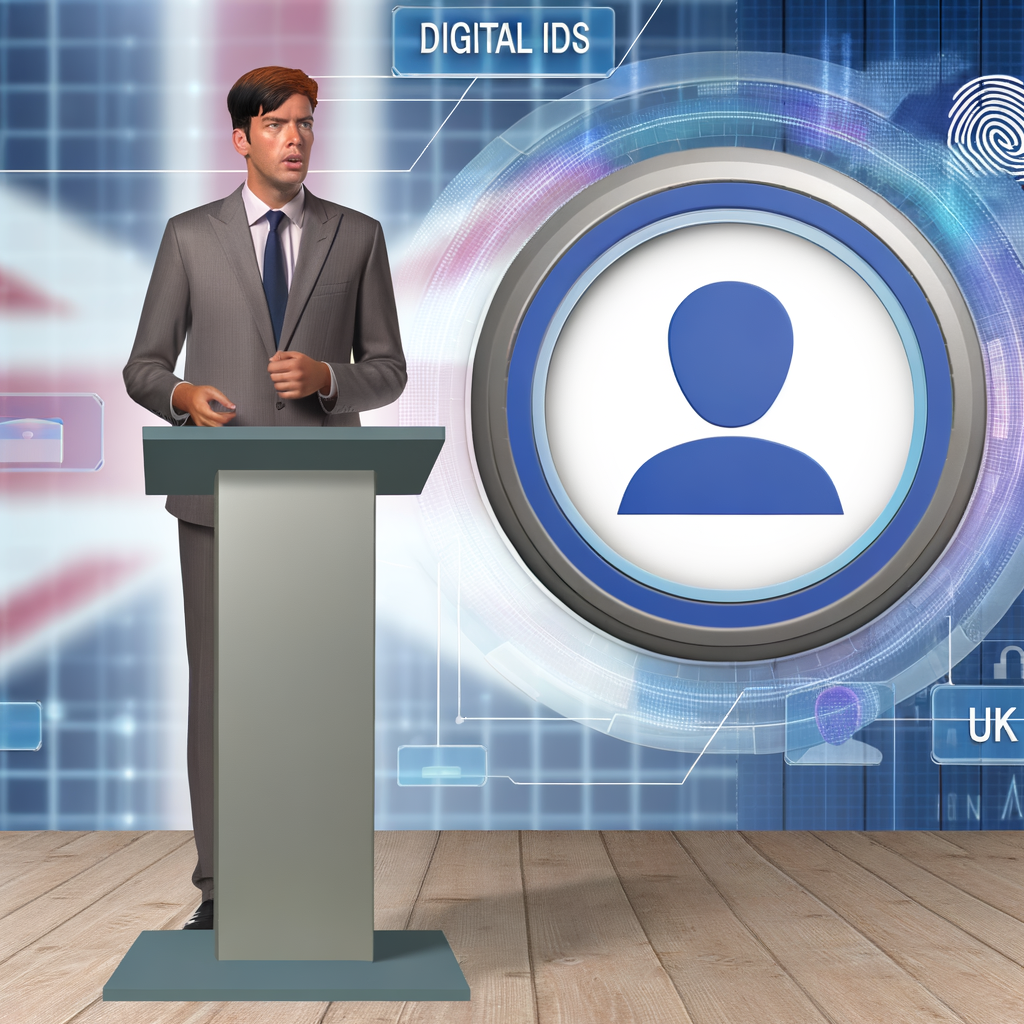Tony Blair Advocates for Universal Digital ID for All Citizens
Former Prime Minister Tony Blair has recently voiced his strong support for the adoption of digital IDs for all citizens. As digitalization continues to sweep across various aspects of our lives, Blair’s proposal has ignited significant discourse. Advocated as a means to streamline governmental processes and improve security, a universal digital ID system carries both promise and controversy. This article delves into the facets of Blair’s proposal, exploring its potential implications and the arguments for and against it.
The Vision Behind Universal Digital ID
In the rapidly evolving technological landscape, Tony Blair sees digital IDs as a crucial step forward. He argues that a universal digital ID could revolutionize how citizens interact with governmental and non-governmental services, bringing about numerous benefits such as:
- Increased efficiency in accessing public services
- Enhanced security and fraud prevention
- Streamlined verification processes across various sectors
Efficiency in Public Services
One of the standout advantages of a digital ID system is its ability to dramatically improve efficiency. With a single digital identifier, citizens could access a wide range of services, from healthcare to education, without the need for multiple forms of identification. This could significantly cut down on time and bureaucracy. Imagine being able to update your address just once and have it automatically reflected across all relevant services. This is the kind of future Blair envisions.
Enhanced Security
Security concerns are at the heart of Blair’s push for digital IDs. Traditional forms of identification are vulnerable to theft and fraud. A well-implemented digital ID system, on the other hand, could employ advanced encryption technologies and multi-factor authentication to ensure that personal data is well-protected. Such a system could be a game-changer in the fight against identity theft and cybercrime.
Streamlined Verification
From opening a bank account to signing a rental agreement, the process of verification is a common bottleneck. Digital IDs could streamline these processes. Verification that might currently take days or weeks could be completed in minutes, facilitating smoother, faster transactions. This could have particularly significant implications for sectors like finance and real estate.
Arguments for Digital IDs
Proponents of Blair’s initiative argue that digital IDs are not just a futuristic ideal but a necessity in our increasingly digital world. Here are some of the main points in favor:
- Improved access to essential services
- Greater security and fraud prevention mechanisms
- Economic growth through streamlined business operations
Improved Access
The idea that a single digital ID can grant access to a multitude of services is incredibly appealing. From renewing a driver’s license to managing health records, a universal digital ID could make life much simpler for citizens. By making public services more accessible, digital IDs could also help bridge existing gaps in service delivery.
Greater Security
Digital IDs could significantly bolster security measures. Implementing biometric authentication methods, for instance, can ensure that identities are virtually impossible to fake. With threats of cybercrime on the rise, enhanced security protocols embedded within digital IDs could provide a robust defense mechanism against a variety of fraudulent activities.
Economic Growth
From a business perspective, digital IDs can streamline operations, reduce overhead costs, and accelerate processes. By making it easier and more secure to verify identities, companies can better focus on expanding their activities. This can foster an environment of innovation and economic growth, benefiting everyone in society.
Opposition and Concerns
Despite the obvious advantages, Blair’s proposal is not without its critics. Here are some of the primary concerns:
- Privacy concerns and data security
- The risk of exclusion for certain populations
- Implementation challenges and costs
Privacy Concerns
One of the most significant reservations about digital IDs is the potential invasion of privacy. With personal data being stored on digital platforms, there’s a heightened risk of data breaches. Critics argue that extensive measures would be necessary to protect citizen information and ensure it isn’t misused or accessed by unauthorized parties.
Risk of Exclusion
Another important issue is the risk of excluding certain populations, particularly those who are less tech-savvy or lack access to digital technologies. Without proper accommodations, there’s a danger that a digital ID system could exacerbate existing inequalities, leaving some residents underserved.
Implementation Challenges
Finally, the logistical hurdles of implementing a universal digital ID system cannot be ignored. The cost of development, deployment, and maintenance is substantial, and there’s always the risk that unforeseen technical issues could arise. Any delays or failures could undermine the effectiveness of the system and erode public trust.
Conclusion
While Tony Blair’s vision of a universal digital ID system presents an exciting glimpse into the future, it also brings with it considerable challenges and concerns. On the one hand, it promises enhanced efficiency, security, and economic growth. On the other, significant questions around privacy, inclusivity, and implementation need to be meticulously addressed. As the world continues to rapidly digitize, the dialogue around digital IDs will only grow louder and more critical. Only time will tell whether Blair’s vision comes to fruition and, if it does, how it will shape our society.



